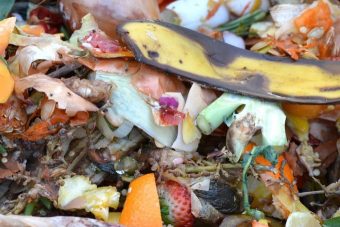
Commercial food waste is a huge problem. In the UK alone it was estimated that in 2011 the cost of food wastage was £2.5 billion for the hospitality and food service sector. This equates to approximately 1.3 billion meals. Of this wastage, 75% was avoidable. UK startup Winnow has been helping businesses tackle this problem head on by using smart meter technology attached to waste bins in combination with their software system to track and report the food wastage of commercial kitchens.
Since its founding in 2013, the company’s customer base has been steadily growing, and it can now boast high profile names such as IKEA and the Costa Cruises as clients. In total, the Winnow system is installed in more than 600 kitchens in a total of 29 different countries. The results are speaking for themselves, and it’s estimated that Winnow has been able to reduce the annual food waste of its customers by 4,300 tonnes. This has both a financial impact, and an environmental impact.
By reducing the amount of food that a commercial kitchen wastes, the kitchen can improve its bottom line and profitability. This is especially important given the very tight margins that restaurants and similar businesses operate on. In addition to this, when less food is being wasted, it saves on the CO2E emissions that would have been contributed by the extra food production. This saves somewhere in the region of 19,000 tonnes of CO2E emissions per year.
The strength of the company hasn’t gone unnoticed, and in its recent funding round it managed to raise $7.4 million in growth capital. Investors include Circulatory Capital, D-Ax and Mustard Seed.
Winnow co-founder and CEO Mark Zornes is understandably optimistic about the new funding round and its performance to date. “The hospitality sector is quickly waking up to the opportunity that food waste presents,” he said in a statement. “We are encouraged by some of our biggest clients now having the confidence to make public commitments to reduce food waste, and we expect the rest of the industry to follow suit doing the right thing for their businesses and for the planet.”
Source: cleantechnica.com



